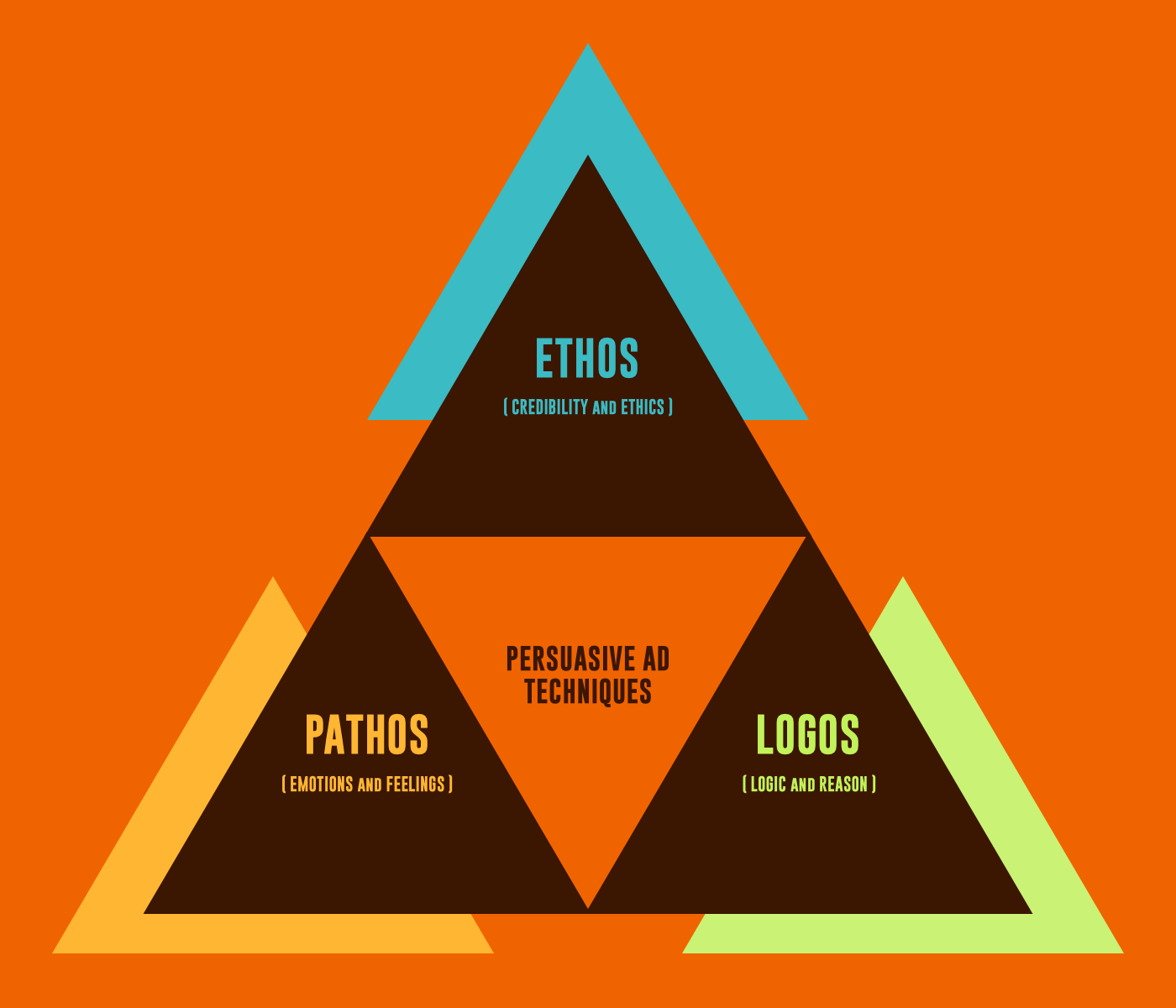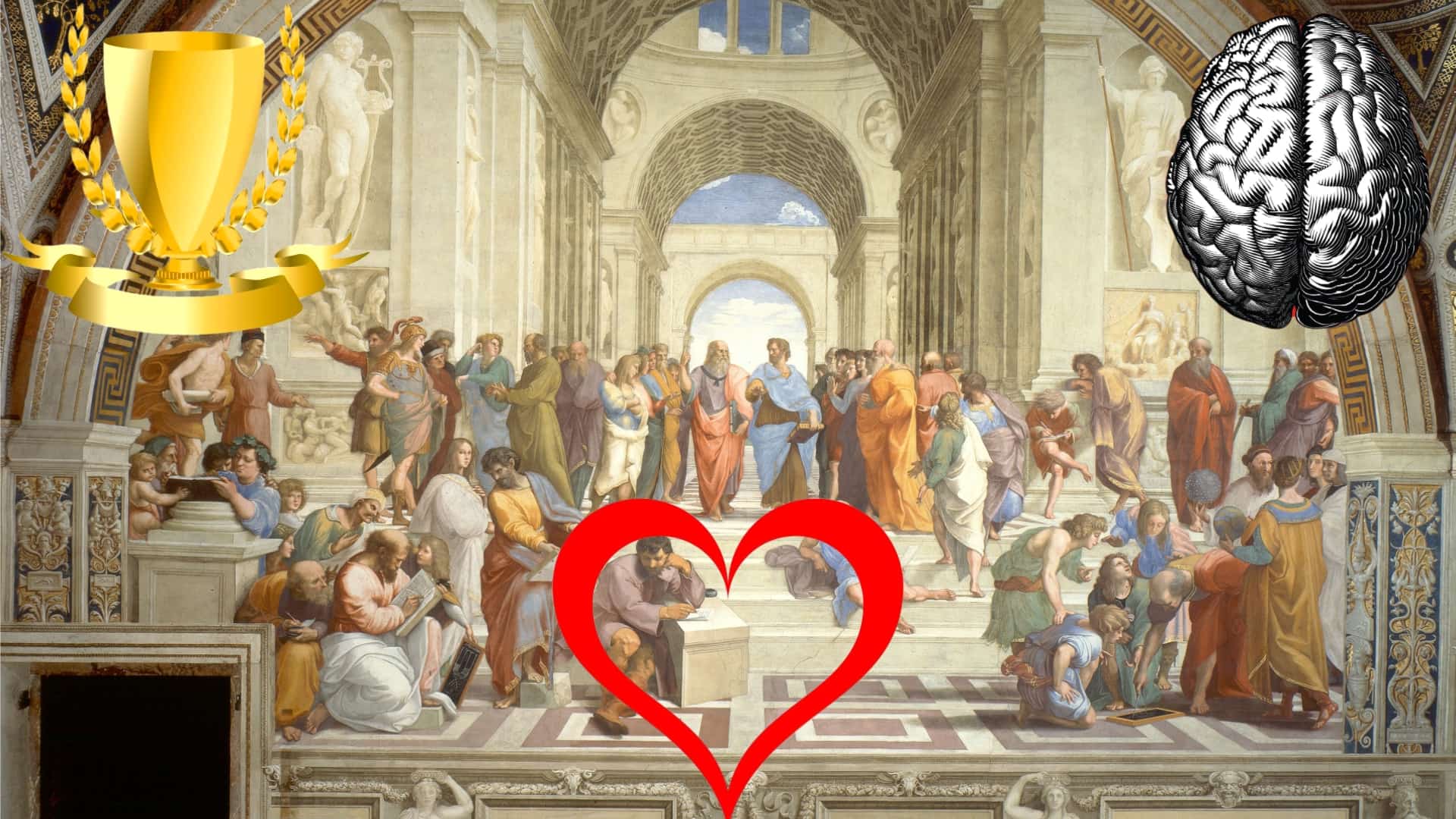You may not realize it, but the rhetoric you encounter everyday is based on rhetorical principles created hundreds of years ago. As one of the oldest areas of study, rhetoric has been used to direct and influence society as early as ancient Greece and continues to be used in various facets of society today. What is rhetoric and what is its relevance to you and the world we live in? Let’s dive in.
What Is Rhetoric
First, let’s define rhetoric
Before we take a look at some iconic rhetoric examples and its origins in history, let’s first look at the definition to better understand the term.
RHETORIC DEFINITION
What is rhetoric?
Rhetoric is a means of verbal and written communication that is constructed to persuade, inform or motivate. Rhetoric appeals to a person’s logic and/or emotions in order to support the speaker’s intended purpose. The word rhetoric derives from the Greek word ‘rhetorikos’ which means ‘oratory.’ Rhetorical communication is still commonly used in conversations, politics, law, and public speaking.
Types of Rhetoric:
- Ethos (Authority)
- Pathos (Emotion)
- Logos (Logic)
What Is Rhetoric In History?
History of rhetoric
Rhetoric is commonly used in modern day discourse within politics, law, and advertising. Its origins can be traced back to ancient Greece with the rise of democracy. As politicians began running for office, this technique of persuasive speech became a craft at gaining support for a politician.
During discourse, a formal exchange of concepts and ideas, speakers would use rhetoric to explain their political or ideological positions. All of this was utilized to gain support from an audience.
This video does a great job breaking these concepts and their histories down.
What is Rhetoric • Origins and Definition
In ancient Greece, rhetoric was used in discourse between sophists and philosophers. These groups often had differing opinions and positions that would be debated in public settings.
With the rise of democracy for the first time in society, the art of rhetoric became increasingly more important. It also had an incredible influence on the direction a society took. Those who were able to master rhetoric could gain more support and therefore more power and influence.
These origins are the foundation of rhetoric as we see it today in various industries and facets of society. The main principles that came about in ancient Greece that are still used today are the rhetorical appeals curated by Aristotle.
Related Posts
Types Of Rhetoric
Rhetorical appeals
The rhetorical appeals (also called the Aristotelian triad or Aristotelian appeals) are three primary modes of argument written by the Greek philosopher Aristotle in his work Rhetoric.

Types of Rhetoric
Let’s take a look at this video to get a breakdown of each rhetorical appeal and how they might be used to persuade a listener or audience.
Ethos, Pathos, & Logos: Forms of rhetoric • Subscribe on YouTube
To recap, the rhetorical appeals are aimed at specific facets of a human’s reception to speech or writing.
Ethos refers to a speaker's credibility and their good character. Establishing ethos as a speaker helps to build trust with those listening.
Logos appeals to logic and reasoning. Plato and Aristotle referred to logos as the most important rhetorical appeal because of the three, it is the most difficult to fabricate.
Pathos is an Aristotelian appeal that engages an audience’s emotions. Pathos is founded by an appeal to various emotions such as fear, duty, hope, humor, love, and patriotism.
Related PostS
Why Rhetoric Is Important
Rhetoric examples
Rhetoric’s importance to society is undeniable. Since its origin, well crafted persuasion has changed the course of history.
Let’s take a look at a few rhetoric examples and the means in which it was crafted for a specific purpose.
“I Have a Dream” by Dr. Martin Luther King Jr.
On August 28th, 1963, Martin Luther King Jr. delivered one of the most iconic speeches in the history of America. During the March on Washington for Jobs and Freedom, King crafted a speech through rhetoric that implored the nation to bring an end to racism and move forward into a nation of equality.
King utilized literary devices such as anaphora and repetition while appealing to the nation's emotions and logic to deliver the most moving speech of the Civil Rights Movement. If you've never seen it, or just need a reminder, watch this clip below and you will feel the rhetoric coming through.
I Have a Dream speech by Martin Luther King Jr.
Susan B. Anthony — On Women's Right to Vote
After being arrested for illegally voting during the American election of 1872, Susan B. Anthony delivered a speech in which she crafted rhetoric to deduce why she had committed no crime.
Anthony’s impact on women’s rights and equality in America is undeniable, and this speech displays her mastery of the rhetorical craft.
“Friends and fellow citizens: I stand before you tonight under indictment for the alleged crime of having voted at the last presidential election, without having a lawful right to vote. It shall be my work this evening to prove to you that in thus voting, I not only committed no crime, but, instead, simply exercised my citizen's rights, guaranteed to me and all United States citizens by the National Constitution, beyond the power of any state to deny.
The preamble of the Federal Constitution says:
"We, the people of the United States, in order to form a more perfect union, establish justice, insure domestic tranquillity, provide for the common defense, promote the general welfare, and secure the blessings of liberty to ourselves and our posterity, do ordain and establish this Constitution for the United States of America."
It was we, the people; not we, the white male citizens; nor yet we, the male citizens; but we, the whole people, who formed the Union. And we formed it, not to give the blessings of liberty, but to secure them; not to the half of ourselves and the half of our posterity, but to the whole people - women as well as men. And it is a downright mockery to talk to women of their enjoyment of the blessings of liberty while they are denied the use of the only means of securing them provided by this democratic-republican government - the ballot.
For any state to make sex a qualification that must ever result in the disfranchisement of one entire half of the people, is to pass a bill of attainder, or, an ex post facto law, and is therefore a violation of the supreme law of the land. By it the blessings of liberty are forever withheld from women and their female posterity.
To them this government has no just powers derived from the consent of the governed. To them this government is not a democracy. It is not a republic. It is an odious aristocracy; a hateful oligarchy of sex; the most hateful aristocracy ever established on the face of the globe; an oligarchy of wealth, where the rich govern the poor. An oligarchy of learning, where the educated govern the ignorant, or even an oligarchy of race, where the Saxon rules the African, might be endured; but this oligarchy of sex, which makes father, brothers, husband, sons, the oligarchs over the mother and sisters, the wife and daughters, of every household - which ordains all men sovereigns, all women subjects, carries dissension, discord, and rebellion into every home of the nation.
Webster, Worcester, and Bouvier all define a citizen to be a person in the United States, entitled to vote and hold office.
The only question left to be settled now is: Are women persons? And I hardly believe any of our opponents will have the hardihood to say they are not. Being persons, then, women are citizens; and no state has a right to make any law, or to enforce any old law, that shall abridge their privileges or immunities. Hence, every discrimination against women in the constitutions and laws of the several states is today null and void, precisely as is every one against Negroes.”
— Susan B. Anthony - On Women's Right to Vote
As one of the oldest areas of study, rhetoric has and will continue to be one of the most influential modes of communication on the course of society. Our political leaders, our economic behaviors, our opinions, and our ideologies are all influenced by rhetoric that has been crafted and delivered to us. An understanding of rhetoric is important both to present your own ideas and to analyze the concepts that are presented to you.
Related Posts
UP NEXT
Explore more rhetorical devices
Now you know what rhetoric is. Time to look into rhetorical appeals, including kairos and telos. Or you can dive into more rhetorical devices that help construct and support these appeals, including alliteration, parallelism, and metonymy. When you've mastered these techniques, your ability to convince and persuade in your writing will be unmatched.
